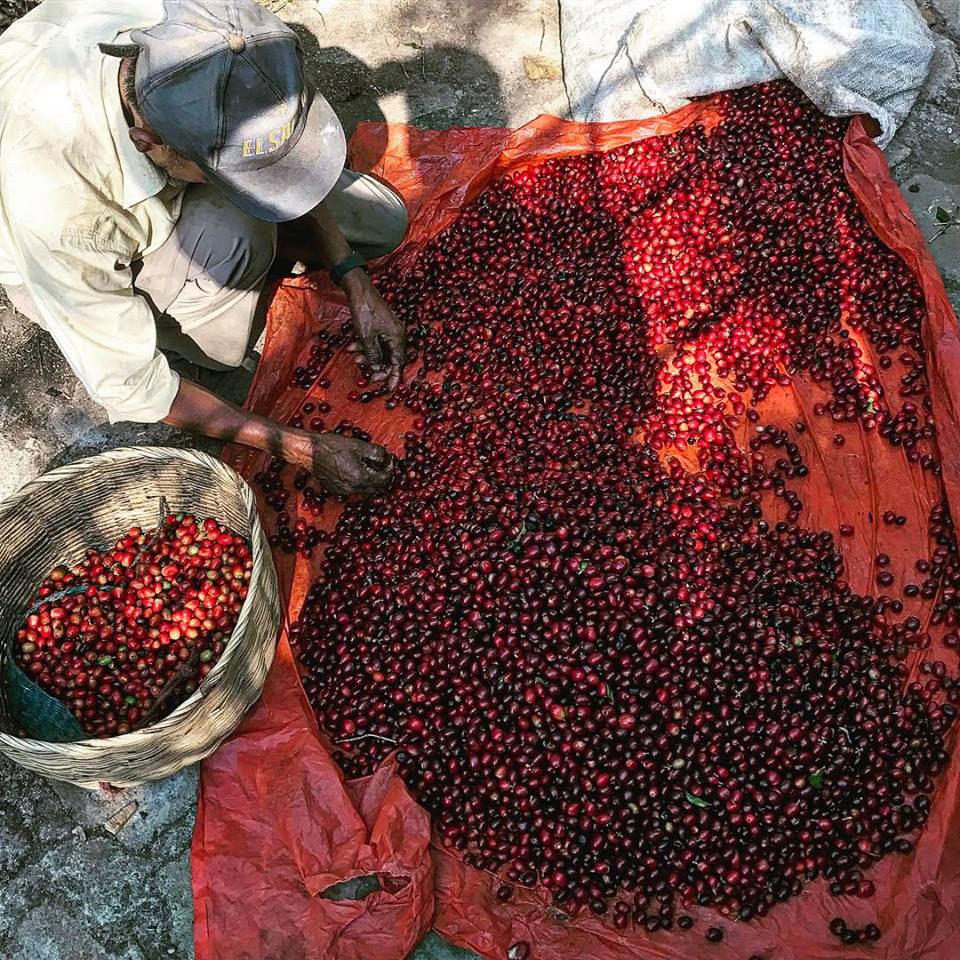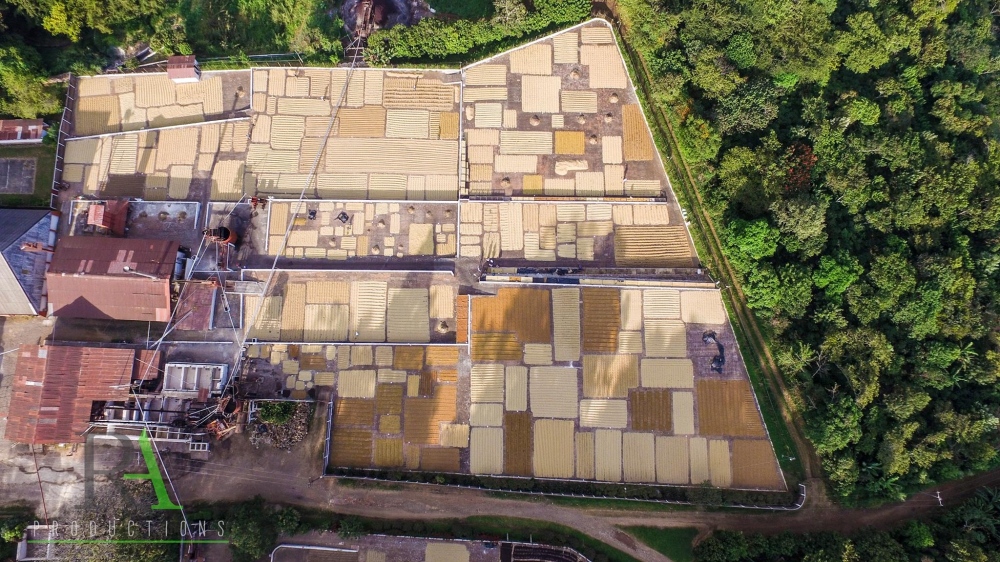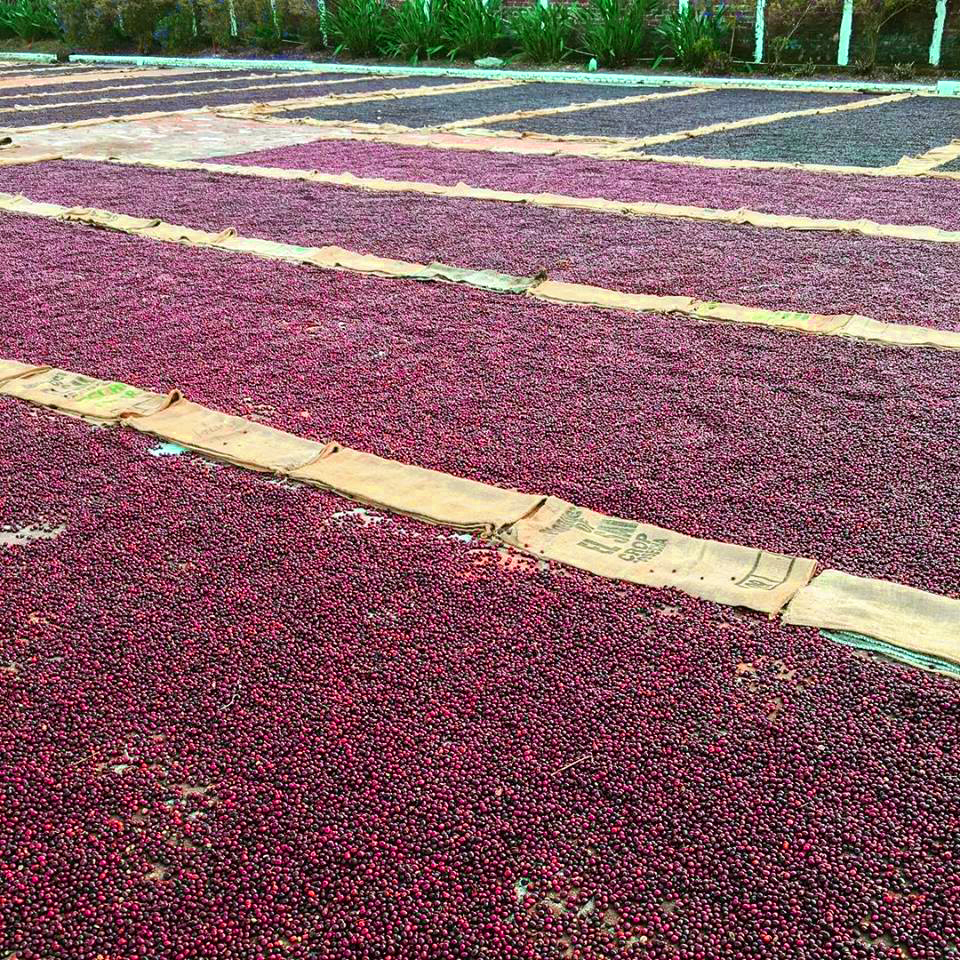An insight into coffee farming
We recently had the privilege of welcoming Fernando Alfaro, owner of Finca El Carmen in El Salvador, to our Roastery. We spent the day discussing each other’s respective part of the industry gaining valuable insights into the contributions made by both. As well as being a coffee farm, Finca El Carmen processes coffee for other farms, and this allowed us to gain a greater understanding of processing methods and the approaches adopted by Fernando and his family.
We’ll soon be offering a natural processed coffee from Finca Nazareth, which was processed at El Carmen, so we asked Fernando to talk us through the process.
Fernando believes the key to a good naturally processed coffee (or any coffee for that matter) is only picking perfectly ripe cherries. As cherries ripen at different rates, selective harvesting is time consuming and requires multiple pickings, each one adding stress to the plant. Picking the cherries at the right time seems to be a skill Fernando and his fellow farmers have developed over generations.

Harvest coincides with school holidays so whole families become involved and there can be a party atmosphere on the farms. Pickers are paid according to the weight of cherries they pick. As selective picking of ripe cherries takes more time, the pickers are paid a premium whenever speciality coffee is concerned. By around 2pm the harvest for the day is completed and the cherries have to be sorted by hand to make absolutely sure there are no unripe fruits mixed in. The cherries will then be weighed and checked, with the total income for the picker calculated (if unripe cherries are spotted at this point, the picker is sent away to sort through them again).

Occasionally it rains during harvest time. Prolonged or heavy rains are not good for the cherries as they absorb the moisture, swell and split. This can allow fungus to spread into the cherry and spoil the crop. If it rains there can often be a spike in demand for pickers. The relationship between the foreman on the farm and the pickers can be critical at times like this.

Finca Nazareth is a natural processed coffee which means the cherries are dried in the sun over a period of time before the beans are removed. Fernando believes this should be a slow process, allowing the beans plenty of time to absorb the sweetness and fruit from the cherry. The cherries are spread out on clay patios, with the crop from each farm being carefully labelled and kept separate from the others. Every 20 minutes the cherries are turned to ensure consistent drying. Fernando has situated his patios in a location where they are shaded in the afternoon, allowing the cherries to dry over a period of 18 to 20 days. Each evening the cherries are gathered together and covered to prevent overnight dew from affecting the drying process. The following day the cherries are spread out and the process begins again.

Once dried the cherries are stored in a pile, covered and rested for up to 90 days. Fernando and his team will regularly test the cherries until they feel they are at the right stage, and at this point they will be dry milled to finally reveal the green bean inside. The resting period allows the coffee to develop and for the moisture content of the beans to reach an equilibrium.
The green beans will be packed into Grainpro sacks (to help maintain the freshness), and then hessian sacks, before being shipped to the UK, and eventually on to us at Carvetii. Natural processed coffees can have bold fruit flavours, lots of sweetness and a thick mouthfeel so we’re looking forward to receiving this coffee in a couple of weeks time.
We would like to thank Fernando Alfaro for spending the time at our Roastery, and also Mercanta, our coffee broker, who organised the visit.